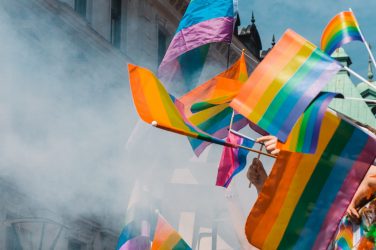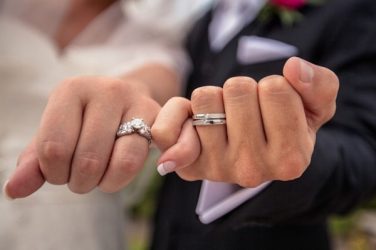Feminism and women’s rights movements are still not completely well-known. Neither is Kosovo’s recent history, or even contemporary reality. So, the intersection of the two, Kosovo’s feminism landscape, is hardly known at all. E&M‘s Nisa Sherifi interviewed a leading feminist figure from Kosovo, Aurela Kadriu, who tells us about the history, challenges, and evolution of the feminist movements of Kosovo.
Hi Aurela! Thank you for doing this piece about feminism in Kosovo with Europe and Me.
Without further ado, could you please tell us a bit about yourself?
I am Aurela Kadriu, a sociologist. During these years I have been trying to focus in memory studies and documentation, which in my recollection is very much a feminist choice because I use the method of oral history in my attempts to document different aspects of the contemporary history of Kosovo and former Yugoslavia. Oral history is built upon the idea of giving voice to the voiceless; of bringing silent voices to the surface. I have tried to employ this method in my work in a few films, exhibitions and one digital archive but listening to people’s life stories and experiences is pretty much the starting point of every research project that I work on. I am currently working at Qendra Multimedia, which is a cultural organization focusing on contemporary theater and literature.
In every part of our history, in every part of the puzzle, you have women that didn’t necessarily define their activity as feminism, but that were doing a great job in something that in my eyes was revolutionary; they were claiming the public spaces and showing their faces in public space.
That’s great!
What is the feminist and women’s rights landscape in Kosovo like? Could you tell us a bit about that, about the general outlook?
There has been a movement for women’s rights in Kosovo for a while, there is history there. I think that that is very important to point out because with the war of 1999, we have a tendency to forget and not commemorate what happened before and during that time; I think it is important to point out that women were very much active and very much part of every resistance movement defining our contemporary history but also earlier. Whenever we talk about this resistance, we always portray a male-dominated, or man-led resistance, which is problematic because women have been carrying the resistance since the 1960, with the movement to remove the full-cover veil, followed by their engagement in the political movements in the ‘70s, ‘80s when they were a crucial part of the so-called illegal or underground movement and in the ‘90s when they carried the parallel system – what I am referring to here, for those who do not know is the parallel system that was established in the ‘90s in Kosovo when Milosevic’s regime installed a 10-year-long apartheid, excluding all Kosovo Albanians from public life (schools, hospitals, cultural institutions), to which the Kosovo Albanians responded by establishing a parallel system thus turning private homes into schools and all public life took place in these alternative spaces offered by people themselves. Besides that, in the ‘90s there was also the movement for blood feuds reconciliation, which women were part of – we are speaking of a time when they – among other political activists – were arrested for their actions. In every part of our history, in every part of the puzzle, you have women that didn’t necessarily define their activity as feminism, but that were doing a great job in something that in my eyes was revolutionary; they were claiming the public spaces and showing their faces in public space.
What would you say is the biggest remaining challenge in Kosovo?
I think I’d have to say it’s the culture. For those who don’t know, immediately after the war a UN peace mission was sent to Kosovo to administer with its institutions. A set of very progressive laws and policies were passed and adopted, but I have a feeling that the circumstances in which these processes took place were not compatible with the general conditions and development of a society that was just coming out of an aggressive war and people were trying to find themselves in the new reality, trying to find ways to survive in a reality into which nothing that they were (professionally but not limited to that) was any longer relevant, or maybe no longer something that the new reality was looking for. The laws were OK, we still take pride in our strong legal framework regarding many aspects of our public life. In theory, they are there but in practice there is always this battle. Culture is one dangerous beast, a strongly patriarchal culture is even more dangerous. I always say that patriarchy is one of the most sophisticated and complex power systems. For societies that’ve been de facto maintaining and cultivating such a system for such a long time – making it a core part of their culture and identity – it is particularly difficult to expect the laws to simply inform a change in attitudes and beliefs. A strong bottom-up emancipation campaign is needed in addition to the legal framework. To put it in practical terms, I am just going to give you one simple example as to why I am particularly mentioning this – women have the legal right to equal inheritance, however according to the latest statistics, I am always bad with numbers so apologies in advance for my potential mistake, but I think that less than 5% of women exercise their right to inheritance from their parents, and maybe a bit more than 13% are actual owners of property. Why they do not claim their right to inheritance is often because of cultural pressure put on them to “leave it to their brothers” or to a male next of kin in cases when they do not have a brother. That means, that they would rather give their parents’ property to their brothers or closest male (paternal) cousins rather than claim it themselves, even though their role into creating and maintaining that property is undeniable. So, I think the biggest remaining challenge is fighting these cultural manifestations of patriarchy. And the more I work on this, the more I research and observe, the more I realize that it is such a complex and difficult road. The battle is long.
I see women who work in women’s rights organizations that were established back then really going back to grassroots movements. They want to take the streets, they don’t want to censor themselves. And, I think this is really important.
How has the movement evolved these past few years?
How I see it is that while Kosovo was under the UN administration, there was a sort of “NGO-ization” of the movement, and many other social causes and battles, like human rights, LGBTQ+ rights, women’s rights, and so on. There was this donor-driven agenda, which had its impact and played an important role in the time we are talking about, however looking at it from this distance, I have a feeling that it was somehow not organic. What I see now in our feminist movement, is a sort of resistance to that kind of feminism. I see women who work in women’s rights organizations that were established back then really going back to grassroots movements. They want to take the streets, they don’t want to censor themselves. And, I think this is really important. In my personal experience, the past five years have been crucial in redefining the feminist movement in Kosovo. Taking the very contemporary history into account, I’d say this is the best condition the movement has been in because now it’s organic and also based on reading sessions, discussion sessions, there are a lot of those happening; a lot of feminist knowledge is being translated and discussed upon – which I think is the ‘logical’ course of events leading towards a movement that is deemed to have sustainable growth and a longterm impact.
Picture by Aurela Kadriu










